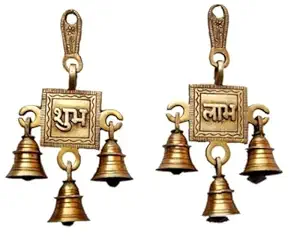આરાસુર નાં અંબે માં તમે જમવા વેલા આવજો
જમવા વેલા આવજો તમે સહેલી ને લાવજો
સોમ વારે શીરો પૂરી જમવા વેલા આવજો
જમવા વેલા આવજો સાથે બહુચર માં ને લાવજો
આરાસુર નાં અંબે માં તમે જમવા વેલા આવજો
મંગલવારે મોહનથાળ જમવા આવજો
જમવા વેલા આવજો સાથે કાલકા માં ને લાવજો
આરાસુર નાં અંબે માં તમે જમવા વેલા આવજો
બુધવારે બરફી પેંડા જમવા વેલા આવજો
જમવા વેલા આવજો સાથે ચામુંડા માં ને આવજો
આરાસુર નાં અંબે માં તમે જમવા વેલા આવજો
ગુરુવારે ગુલાબ જાંબુ જમવા વેલા આવજો
જમવા વેલા આવજો સાથે દુર્ગા માં ને લાવજો
આરાસુર નાં અંબે માં તમે જમવા વેલા આવજો
શુક્ર વારે સુતર ફેની જમવા વેલા આવજો
જમવા વેલા આવજો સાથે સરસ્વતી માં ને લાવજો
આરાસુર નાં અંબે માં તમે જમવા વેલા આવજો
શાની વારે શીખંડ પૂરી જમવા વેલા આવજો
જમવા વેલા આવજો સાથે પાર્વતી માં ને લાવજો
આરાસુર નાં અંબે માં તમે જમવા વેલા આવજો
રવિવારે રસગુલ્લા જમવા વેલા આવજો
જમવા વેલા આવજો સાથે ગાયત્રી માં ને લાવજો
આરાસુર નાં અંબે માં તમે જમવા વેલા આવજો
જળ જમના ની જારી ભરું, આચમન કરવા આવજો
આચમન કરવા આવજો, સાથે લક્ષ્મી માં ને લાવજો
લવિંગ સોપારી અને પાન ના બિડલા, મુખવાસ લેવા આવજો
મુખવાસ લેવા આવજો સાથે સાવાત્રી માં ને લાવજો
આરાસુર નાં અંબે માં તમે જમવા વેલા આવજો
જમવા વેલા આવજો તમે સહેલી ને લાવજો
Overview of "Arasur Na Ambe Maa Thal"
Title & Devotion
'Arasur Na Ambe Maa Thal' is a devotional song offered to Goddess Amba of Arasur, symbolizing devotion, surrender, and gratitude.
Historical Roots
The song originates from the long-standing Gujarati tradition of worshipping Goddess Amba with sacred offerings.
Language & Lyrics
Composed in Gujarati, the lyrics express heartfelt devotion and praise for the Goddess.
Cultural Context
Deeply rooted in Gujarati festivals, this hymn is integral to Navratri and temple celebrations.
Popularity
Chanted in homes, temples, and Navratri gatherings, it remains beloved among devotees.
Lyrics & Themes
Opening Verses
The hymn begins by invoking the Goddess with respect and reverence, setting a devotional tone.
Symbolic Imagery
Lyrics use imagery of offerings and divine blessings to glorify Goddess Amba.
Repetition & Rhythm
Repeated lines make the song ideal for collective chanting during rituals.
Central Message
The song highlights devotion, humility, and surrender before Goddess Amba.
Closing Invocation
The hymn ends with blessings sought for peace, prosperity, and divine grace.
Spiritual Significance
Benefits of Singing
Reciting the Thal is believed to bring protection, prosperity, and inner peace.
Role in Navratri
This devotional offering is performed during Navratri to honor Goddess Amba’s presence.
Inner Purification
The verses encourage purity of mind, heart, and soul through devotion.
Divine Protection
Devotees believe Goddess Amba protects them from misfortune and guides them to righteousness.
Strengthening Faith
Chanting the hymn deepens belief and strengthens spiritual connection with the Goddess.
Performance & Practice
Daily Recital
Many devotees recite this hymn daily as part of morning or evening prayers.
Navratri Rituals
It is sung collectively during Navratri Aarti, enhancing the devotional atmosphere.
Musical Renditions
Traditional singers perform this hymn with instruments like dhol and manjira.
Community Participation
Sung together in temples and homes, it fosters unity among devotees.
Modern Access
Available in recordings, videos, and lyrics online, making it easy for global devotees.
Cultural & Religious Importance
Gujarati Heritage
The hymn preserves the essence of Gujarati devotional culture for future generations.
Arasur Temple Connection
Closely linked with Arasur Amba Mata Temple, the hymn holds local and regional importance.
Navratri Celebrations
It is a vital part of Navratri offerings and is performed across Gujarat during the festival.
Preservation of Tradition
Through singing the Thal, families keep alive devotional and cultural traditions.
Spiritual Legacy
The hymn continues to inspire faith and strengthen the bond between devotees and Goddess Amba.
'Arasur Na Ambe Maa Thal' is a devotional song offered to Goddess Amba of Arasur, symbolizing devotion, surrender, and gratitude.
The song originates from the long-standing Gujarati tradition of worshipping Goddess Amba with sacred offerings.
Composed in Gujarati, the lyrics express heartfelt devotion and praise for the Goddess.
Deeply rooted in Gujarati festivals, this hymn is integral to Navratri and temple celebrations.
Chanted in homes, temples, and Navratri gatherings, it remains beloved among devotees.
The hymn begins by invoking the Goddess with respect and reverence, setting a devotional tone.
Lyrics use imagery of offerings and divine blessings to glorify Goddess Amba.
Repeated lines make the song ideal for collective chanting during rituals.
The song highlights devotion, humility, and surrender before Goddess Amba.
The hymn ends with blessings sought for peace, prosperity, and divine grace.
Reciting the Thal is believed to bring protection, prosperity, and inner peace.
This devotional offering is performed during Navratri to honor Goddess Amba’s presence.
The verses encourage purity of mind, heart, and soul through devotion.
Devotees believe Goddess Amba protects them from misfortune and guides them to righteousness.
Chanting the hymn deepens belief and strengthens spiritual connection with the Goddess.
Many devotees recite this hymn daily as part of morning or evening prayers.
It is sung collectively during Navratri Aarti, enhancing the devotional atmosphere.
Traditional singers perform this hymn with instruments like dhol and manjira.
Sung together in temples and homes, it fosters unity among devotees.
Available in recordings, videos, and lyrics online, making it easy for global devotees.
The hymn preserves the essence of Gujarati devotional culture for future generations.
Closely linked with Arasur Amba Mata Temple, the hymn holds local and regional importance.
It is a vital part of Navratri offerings and is performed across Gujarat during the festival.
Through singing the Thal, families keep alive devotional and cultural traditions.
The hymn continues to inspire faith and strengthen the bond between devotees and Goddess Amba.


